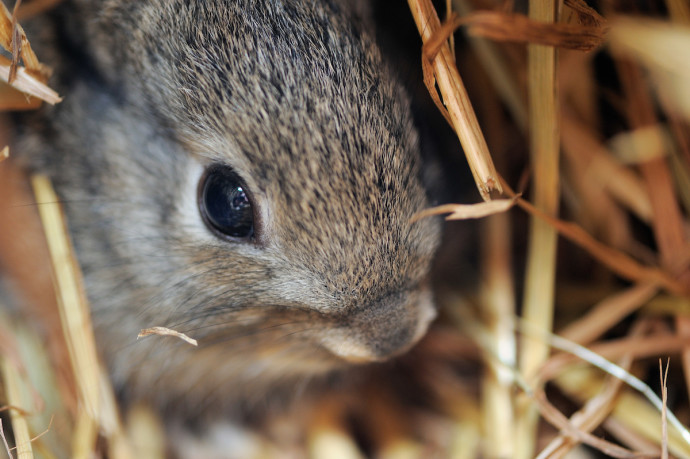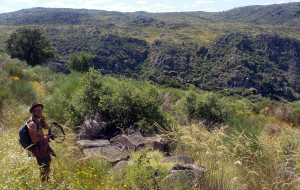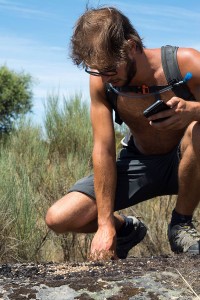Tom Verhoeve, an intern for Associaçâo Transumância e Natureza, shares his experience in Rewilding Europe’s Western Iberia rewilding area.

With the sun starting to show its face again after a long hard winter, memories flood back of the amazing times that I’ve spent recently in Portugal. This beautiful country, boasting some of the friendliest people I know, was my home for almost three months.
Closer to the border of Spain than to the sea, Algodres is a small town in Portugal’s Guarda District. The small community here comprises mainly farmers, some technicians and field workers, awesome wine-making neighbours, and Senhor Henrique’s coffee bar “O Escondidinho”. This was to be my temporary base.

Life was definitely good in Algodres, but you can’t spend every day drinking wine and sitting about in cafés. I’m happy to say that I spent (most of) my time in a more productive way. After all, the reason that I came to this small village in one of the wildest parts of Portugal was to conduct research.
A partner of Rewilding Europe, Associaçâo Transumância e Natureza (ATN) is a relatively young nonprofit environmental NGO that aims to create space for nature in north-eastern Portugal. They own the very first private reserve in Portugal – the Faia Brava Reserve – located next to Algodres, in the Côa Valley Special Protection Area (SPA). When I was still in the Netherlands, Rewilding Europe and ATN gave me the opportunity to carry out an internship in the Western Iberia rewilding area. Jumping at the offer, two fellow students (also from the Aeres Hogeschool in Almere) and I were soon making the journey to Algodres.
The European rabbit or common rabbit is a species native to Spain and Portugal. However, due to its decline in the native range it is listed as Near Threatened on the IUCN List of Threatened Species whilst Spanish authorities recently reclassified the rabbit as Vulnerable in Spain. In Portugal, and especially the Faia Brava Reserve, predatory species like the Iberian wildcat, Iberian lynx, Spanish imperial eagle and also numerous other bird species, require a healthy prey base. Lagomorphs, and European rabbits in particular, are very important in this regard.
Rabbits also play a vital role as ecosystem engineers, creating extended burrow systems that can be used by many different species. In large numbers, they can even contribute to soil fertility with their droppings, expanding their own habitable range. By stimulating the expansion of vegetation, countless other species are also able to sustain themselves in what were previously uninhabitable areas. Sadly, rabbit populations have been decreasing in Western Iberia, largely because of overhunting and the impact of the Brazilian Myxoma virus and rabbit haemorrhagic disease (RHD). With the reverse of this decline critically important, the focus of my research was the reestablishment of a healthy local rabbit population.

My work in Western Iberia rewilding area wasn’t exactly the most glamorous, and was the the topic of more than a few jokes. Yet as I searched for the droppings of rabbits and carnivorous mammals, I certainly had fun. Walking through the reserve, climbing its mountains and following its paths, I witnessed first hand its beauty, and came to appreciate the real need for rewilded areas.
In the months that I was in Portugal I walked a lot in the Faia Brava Reserve. I scanned the ground and rocks next to the path for the droppings and latrines of rabbit and hare, and also for the scats of different carnivores. I took pictures of what I found, made notations about the size, smell and contents, and took GPS points of every discovery.
My research showed that rabbit populations have not significantly changed over time. More work is needed to boost their numbers, so that Iberian wildcats can start flourishing in Faia Brava, and Iberian lynxes can reinhabit the area. For both these species, and for the many local predatory birds, it will be best if healthy stable European rabbit populations can be reestablished as quickly as possible.
For the sake of healthy ecosystems in Faia Brava and beyond, let’s work together with Rewilding Europe and ATN to save rewild rabbit populations. Success here can bring about a wilder future in this beautiful corner of Western Iberia.
